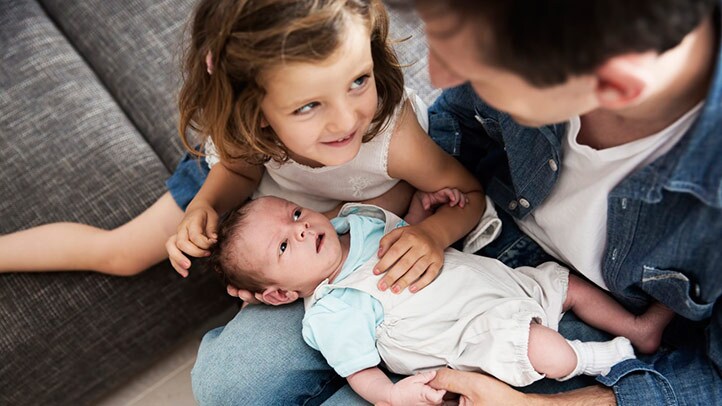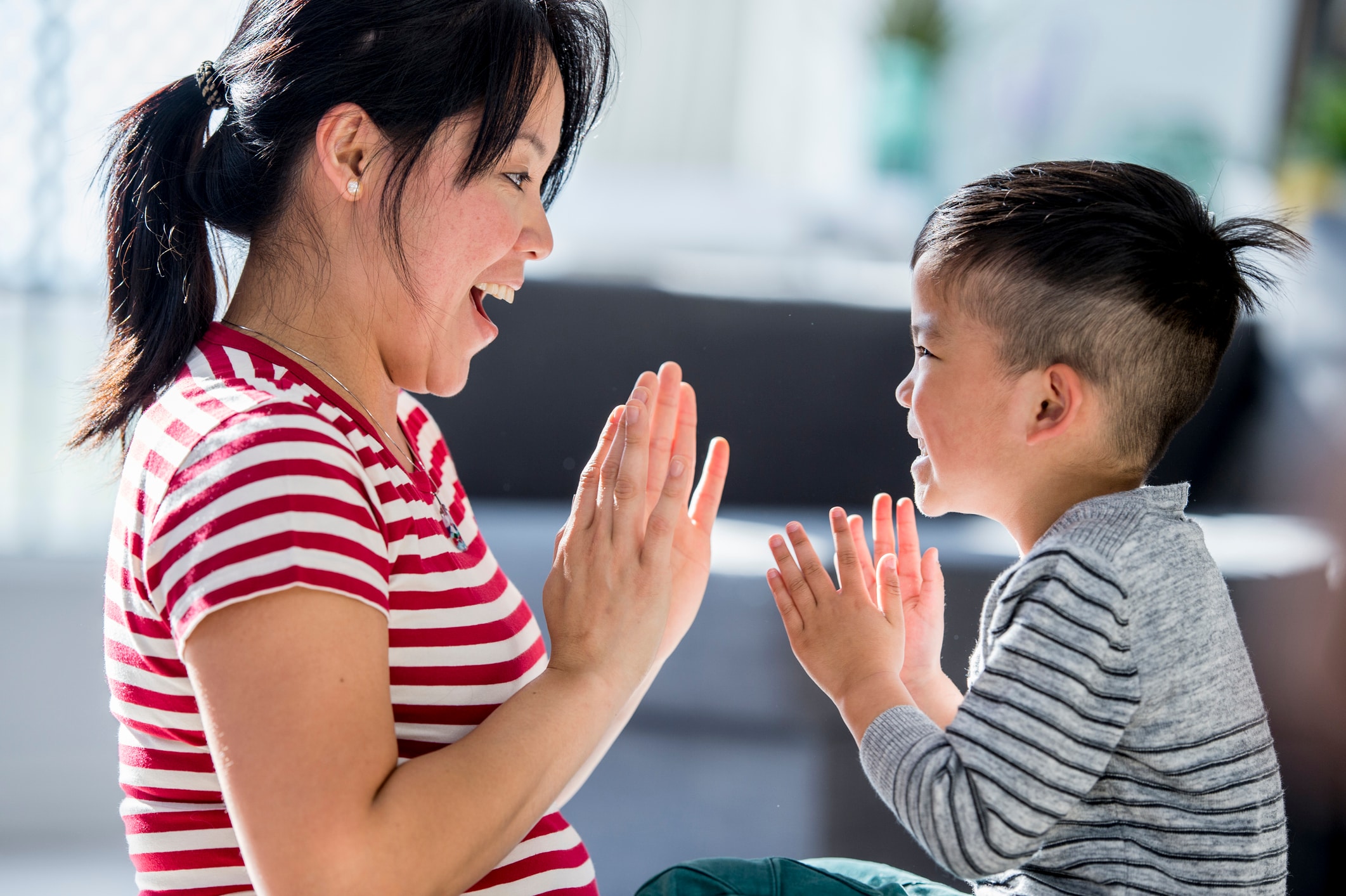Giving your child a sibling can be the greatest gift and the greatest curse. The rewards of having a baby sister or brother often go unrecognized by a toddler who just lost his/her spot as mommy and daddy’s only star. It is natural that children should experience a mixture of emotions from excitement to confusion and anger.
The obvious questions in a toddler’s mind might be: Why did they need to have another child if they love me?; Wasn’t I enough for them?; Will they love him/her more than me? When can we send back the baby?
Having a sibling is the most humbling and civilizing of experiences-a fall from grace which promotes empathy, sharing and cooperation. For some toddlers, however, it can be a devastating experience which leads to uncharacteristic aggression and regressive behavior, ie. sleep difficulties, nightmares, potty accidents and tantrums.
But there are things you can do preventatively to relieve and ease the difficulty of a new siblings arrival:
- When telling a child about a new sibling, wait until the pregnancy shows, but give them time to adjust to the idea
- Let your child ask questions about the new baby. Give them a time frame for the birth of the baby
- Don’t make unrealistic promises, but at the same time reassure your child that they are very special and will always be loved
- When the new baby comes home don’t assume your toddler will be happy. Expect some normal hostile feelings toward the baby.
There are several things you can do to reduce any potential aggression:
- Let her know you understand. Try to empathize with your toddler using your words to acknowledge how hard it is to have to share mommy’s attention with the new baby. Acknowledge, rather than ignore, your toddler’s jealousy. Spend special time with your toddler whenever possible. The more alone time you have with them the less threatened they will feel by the baby’s presence
- Find an outlet. Encourage your toddler to express him/herself with words or art rather than physically
- Enlist his/her aid. Distract your older child from hitting or biting by teaching him/her to interact with and help care for the new baby. Find simple things your older child can help you with like entertaining the baby while you diaper him/her or fetching things for the baby like toys and bottles
- Make it safe. Protect the baby from the older sibling’s aggression. Allowing your toddler to hurt the baby will hurt them as well because they may feel guilty, out of control and unsafe with their aggression. Avoid labeling your older child as aggressive or “mean” to the baby-labels stick and can become self-fulfilling prophecies
- Spin it. Describe the advantages of being a big brother/sister such as being able to eat great foods; being able to ask for what they want using words; walking around and being able to explore and be independent
- Be positive. Positively reinforce any cooperation, sharing or kindness your toddler shows their younger sibling-If you are always punishing them for bad behavior and not praising them for positive behavior, the associations with having a sibling will be quite negative and may have a more long-term impact on the sibling relationship.
When regression occurs, let your toddler be the baby for awhile. He/she may want to cuddle with you in the rocking chair; wear a diaper; drink from a bottle or crawl instead of walk. Let them be the baby to reassure them of your love. This regressive behavior is temporary and serves to help them work through their conflicts about the family’s new addition. As time goes on, avoid making comparisons between children. Comparisons even positive ones can be damaging. Try to appreciate their differences and love them for the special things that make them who they are.
Sibling rivalry tends to be more intense when siblings are closer in age. The more time your child or children have of your undivided attention, the less deprived they feel and the kinder and more generous they may treat each other. It is most important for parents to remember that this period of tension or difficulty is usually temporary. Once siblings get to an age where they are both mobile, can communicate and have their own lives, independence and friends; their competitiveness, though still present, may lessen.
Siblings appreciation of one another will increase over time, particularly if you make an effort to spend individual time with all of your children and love them uniquely rather than equally.
—————————————————————————————
Erica Komisar is a veteran psychoanalyst and parent-coach who has been in private practice for 25 years. A graduate of Georgetown and Columbia Universities and The New York Freudian Society, Ms Komisar is a psychological consultant bringing parenting and work/life workshops to clinics, schools, corporations and childcare settings including The Garden House School, Goldman Sachs, Shearman and Sterling and SWFS Early Childhood Center. She lives is New York City with her husband, optometrist and social entrepreneur Dr. Jordan Kassalow, and their three teenage children.
Pre-order her book, Being There: Why Prioritizing Motherhood in the First Three Years Matters and follow her on Twitter
EricaKomisarCSW and on Facebook. Sign up to her newsletter here.





